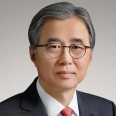With the Democratic and Republican primaries under way for the 2024 U.S. presidential election, the possibility of a rematch between current President Biden and former President Trump as in 2020 is increasing. Former President Trump may return to the White House.
Many are expressing concerns that Mr. Trump’s return will lead to the revival of the ‘America First’ policy. During the Republican primary in early February, Mr. Trump said that if NATO does not pay its fair share, not only would the United States not protect it from Russia, but also added that “I would encourage them (Russia) to do whatever the hell they want.” This deeply shocked NATO member states.
Remarks like this by Mr. Trump are not new. When President Trump visited South Korea for the first time in November 2017, he toured the U.S. Army Garrison Humphreys (Camp Humphreys) in Pyeongtaek. South Korea had contributed $9.7 billion, approximately 90 percent of the construction costs of the base. On the helicopter ride back to Seoul afterwards, Trump said “Look at these high-rises. Look at the highway infrastructure. Look at that train. Look at all of this. We’re paying for all of this. They should be paying for everything.” He added that, “They (South Korea) sell us Samsung TVs, and we protect them.” He concluded that “This is not right,” and that South Koreans are “ripping us off.”
Trump’s remarks show that he does not properly understand the market economy. If Samsung does not sell TVs to the United States, American consumers will have to buy more expensive Japanese TVs or lower-quality Chinese TVs.
The market economy is an organic system that has taken shape based on the natural human instinct to pursue one’s own interests. It is the process through which individual egoism has evolved into reciprocal altruism. If we extend market economy to international trade, it becomes natural for each country to exchange products based on its comparative advantage. It is not possible for only a specific country to benefit.
Mr. Trump describes the import of products from allies and friends into the U.S. market as if they are taking away American jobs. But if foreign goods are blocked with high tariffs or only U.S. products are encouraged to be consumed as he argues, U.S. consumers will pay higher prices. Adopting protectionism may temporarily increase employment in the United States, but the quality of life for Americans will worsen due to high commodity prices.
The biggest problem with Mr. Trump’s unilateralism is that it will lead to the isolation of the United States. It is an undeniable fact that the network of alliances that the United States has built around the world has been a great source of power for the United States as it has grown into a leading global power, as well as its own capabilities.
The biggest victims of Mr. Trump’s unilateralism are the United States and its people. Mr. Trump’s misguided decisions could potentially allow the authoritarian coalition of North Korea, China, and Russia to assert dominance in Northeast Asia. North Korea, receiving more support from China and Russia, will increase its nuclear threat against the United States. U.S. initiatives such as the semiconductor alliance and the restructuring of supply chains would lose momentum. Furthermore, the breakdown of the international financial and trade order led by the United States would severely damage the U.S. economy.
Mr. Trump’s popularity is proof that a considerable number of Americans agree with his ideas. Accordingly, South Korea must prepare for and address the potential resurgence of his unilateral approach. Given Mr. Trump’s approach of evaluating alliances primarily from an economic standpoint, it is imperative to capitalize on this perspective to bolster the United States’ defense commitment to South Korea.
Mr. Trump will target the 11th ROK-U.S. Special Measures Agreement on cost-sharing, set to expire in 2025, by demanding a substantial increase in the South Korean contribution. While we may accept some of the United States’ request for an increase, it is imperative that we obtain clear assurance measures to effectively address the growing nuclear threat from North Korea in return. It could also be emphasized that there is a willingness to further share costs depending on the assurance measures provided by the United States. For instance, the United States has opted to enhance its current B-61 tactical nuclear weapons to new guided nuclear gravity bombs, with each weapon’s upgrade cost surpassing $35 million. In return for covering the weapons upgrade expenses and construction costs for storage facilities in South Korea, a proposal could be made to redeploy around 30 of the upgraded tactical nuclear weapons to South Korea.
The United States is also increasing its naval shipbuilding efforts in response to China’s growing naval power in the Indo-Pacific region. But it faces a shortfall in shipbuilding capacity compared to China. It is time for the United States to consider proposals for shipbuilding cooperation with South Korea, leveraging South Korea’s world-class shipbuilding capabilities.
Mr. Trump thinks he is a master of negotiation. To deal with Mr. Trump, it is important to consider at least some of his demands to satisfy his need to be right while also securing South Korea’s own interests are protected through wise negotiation.
* The view expressed herein was published on March 7 in The Dong-a Ilbo and does not necessarily reflect the views of The Asan Institute for Policy Studies.

 Facebook
Facebook Twitter
Twitter